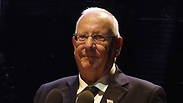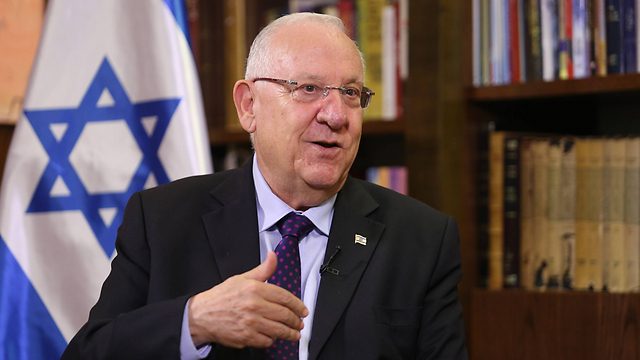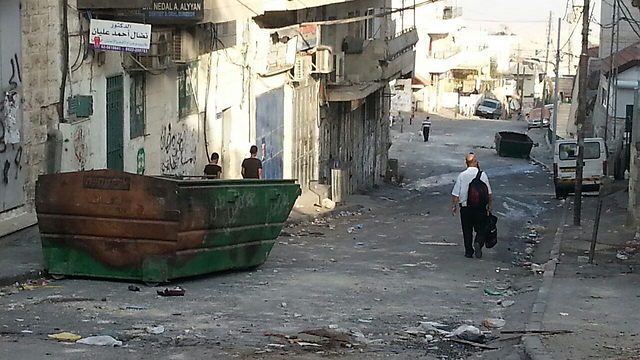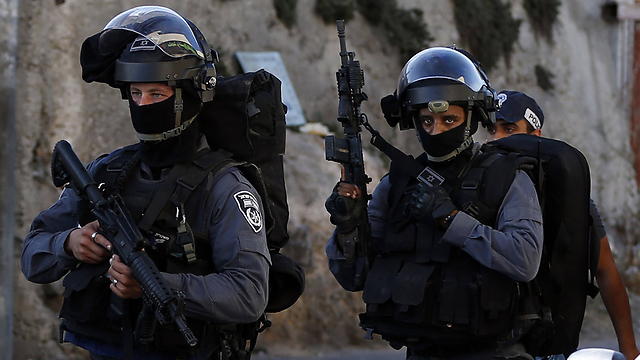
President Reuven Rivlin is in Washington DC this week, ahead of a planned meeting with US President Barack Obama at the White House on Wednesday. Rivlin was set to take part in the White House's official candle lighting ceremony in honor of Chanukah.
Ahead of his visit, the President published a article which outlined his view on the peace process in the Washington Post under the title, "What Israel should do to lay the groundwork for peace."
In his article, Rivlin wrote that there is no feasible solution to the Israeli-Palestinian conflict at the moment, and that there was no diplomatic process underway or peace negotiations on the horizon. "Israel must take steps to improve the situation independent of the geopolitical territorial debate," Rivlin wrote, "steps that every sensible person understands serve simultaneously Israel’s moral and practical interests. Without resolving the question of whether or not Israel today has a Palestinian partner for peace."
He added that, " Even in Jerusalem, seen by many as the greatest diplomatic challenge to any peace treaty, there is much we can do. It is worth understanding that the Israeli right has long ignored the eastern part of the city for reasons of internal political differences, while the left has equally neglected investing in the need for infrastructure to serve the 300,000 Palestinians of the city as part of an ideology of political separation from the Palestinians. "
"Thus, in debating the future, we have neglected to deal with eastern parts of Jerusalem in the present — and thereby literally abandoned the security of Jewish inhabitants and the welfare of Arab ones. Does anyone think that dealing with the sewage, roads, schools and medical centers of eastern Jerusalem can or should wait until the end of the conflict? Is there anyone who thinks the consequences of these economic disparities in the city will stop at genuine or fictitious political borders? At concrete walls or fences? Or as a result of this or that agreement on sovereignty?"
Rivlin emphasized that trust could not be built unilaterally, "It is clear that the Palestinians must end the incitement and violence against Israel," he wrote. "They must end the rejection of the very existence of Israel." The president then turned to the Palestinian youth, telling them that the bloodshed had gone on far too long, and called on their parents and teachers to encourage their children's' dreams of life, not aspirations of death.
He concluded by writing that he did not believe that the current generation would be able to bequeath peace unto their children, but they could however leave a breakthrough, in the form of trust between the peoples and leaders, so that they would not have to start from scratch.
Upon embarking on his trip, Rivlin said, "The friendship between Israel and the US is an expression of the very deep connection between the two. It’s a connection between two nations and between two countries, and I plan on expressing to the President, in the name of our nation, the great appreciation Israel has for the US's unwavering support, during all times and situations."
Rivlin was not scheduled to meet with the recently released former Israeli spy Jonathan Pollard, and would not bring up his parole conditions in his meeting with the President.



















